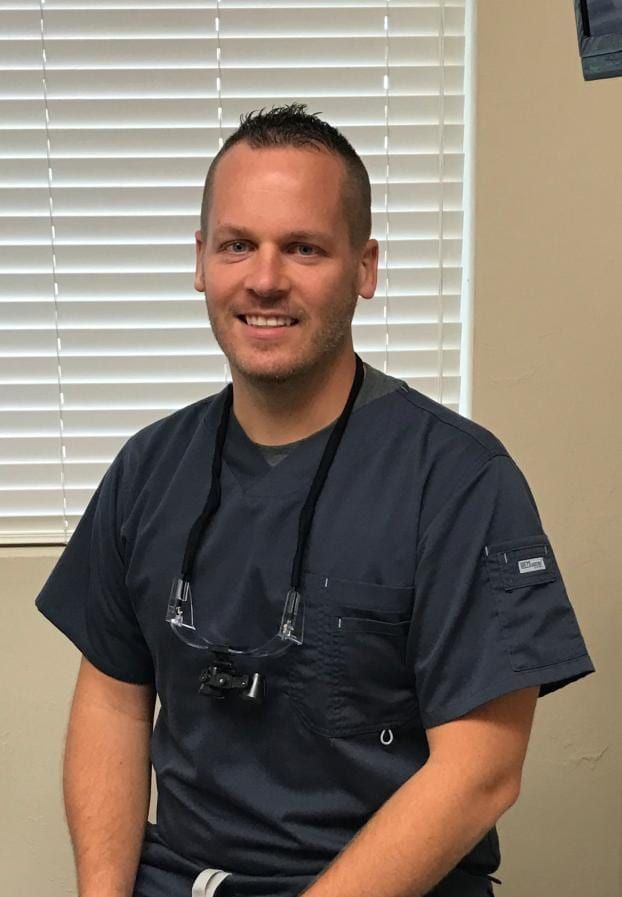Dental injuries can happen unexpectedly, whether during sports, an accident, or even biting into something hard. When these situations arise, knowing how to respond quickly and effectively can make all the difference in preserving your oral health. At McCartney Dental in North Port, FL, Dr. Jonathan McCartney provides expert guidance on handling dental injuries and what steps to take immediately after an incident. From tooth fractures to dislodged teeth, understanding the right precautions and actions will help reduce pain, minimize damage, and increase the chances of successful treatment.
Common Types of Dental Injuries
Dental injuries vary in severity and type, and each requires different care. While some cases can be managed at home temporarily until you reach a dentist, others may require immediate professional attention to prevent long-term damage. Common dental injuries include:
- Chipped or fractured teeth
- Knocked-out (avulsed) teeth
- Loose or dislodged teeth
- Soft tissue injuries (cuts or bruises in the mouth)
- Damage to dental restorations like crowns or bridges
Immediate Steps to Take for Different Dental Injuries
Each type of dental injury requires a specific set of immediate actions to ensure the best possible outcome. Here are the most common dental injuries and the recommended first-aid responses:
1. Chipped or Fractured Teeth
A chipped or fractured tooth is a common dental injury that may occur due to biting into something hard, trauma to the face, or grinding your teeth. If a piece of the tooth has broken off, it can be painful, but the damage is usually not life-threatening.
Immediate Actions:
- Rinse your mouth with warm water to clean the area.
- If there’s bleeding, apply gauze or a clean cloth to the area for about 10 minutes or until the bleeding stops.
- Apply a cold compress to the outside of your cheek to reduce swelling.
- Save any broken pieces of the tooth if possible and bring them with you to the dentist.
- Avoid chewing on the injured side of your mouth until you see a dentist.
At McCartney Dental, Dr. McCartney will assess the extent of the damage and provide appropriate treatment, whether that involves bonding, a crown, or a veneer to restore the tooth.
2. Knocked-Out Teeth (Avulsed Teeth)
A knocked-out tooth is a true dental emergency, and immediate action is crucial for saving the tooth. Time is of the essence in such cases, as the chances of successfully re-implanting the tooth decrease significantly after 30 minutes.
Immediate Actions:
- Hold the tooth by the crown (the part visible in the mouth) and avoid touching the root.
- If the tooth is dirty, gently rinse it with milk or saline solution. Do not scrub or use soap to clean the tooth.
- If possible, try to place the tooth back into its socket. Ensure it is facing the right direction, and bite down gently to hold it in place.
- If you cannot reinsert the tooth, keep it moist by placing it in a milk container or in your mouth next to your cheek. Do not store the tooth in water.
- Seek immediate dental care.
Dr. Jonathan McCartney will assess the viability of re-implanting the tooth. If successful, the tooth may be stabilized using splinting techniques until it attaches to the bone. If the tooth cannot be saved, dental implants or bridges may be recommended to restore your smile.
3. Loose or Dislodged Teeth
A loose or dislodged tooth is less severe than a knocked-out tooth but requires immediate attention. This type of injury usually occurs from trauma to the face, and the tooth may appear to be out of alignment or wobbly.
Immediate Actions:
- Use light pressure to reposition the tooth back into its correct alignment gently. Please do not force it.
- Bite down gently to keep the tooth in place and stabilize it.
- Apply a cold compress to the affected area to reduce swelling.
- Avoid chewing on the injured side until you see a dentist.
Dr. McCartney may use splinting to stabilize the loose tooth and help it reattach to the surrounding bone. If the tooth’s root has been damaged, root canal therapy may be necessary.
4. Soft Tissue Injuries
Injuries to the mouth’s soft tissues, such as the gums, tongue, or lips, can cause significant bleeding and discomfort. While these injuries may not directly affect the teeth, they require prompt care to prevent infection.
Immediate Actions:
- Rinse your mouth with warm salt water to clean the wound.
- Apply pressure to the bleeding area using gauze or a clean cloth for 10-15 minutes.
- Use a cold compress on the outside of your mouth to reduce swelling.
- If the bleeding does not stop after 15 minutes or if the injury is deep, seek emergency dental care.
Soft tissue injuries often heal independently, but Dr. McCartney will examine the wound to determine if stitches or other treatment is necessary.
5. Damaged Dental Restorations
Crowns, bridges, and fillings can become damaged due to trauma, chewing on hard objects, or normal wear and tear. While these injuries are not always emergencies, they can lead to discomfort and further dental issues if left untreated.
Immediate Actions:
- If a crown or filling falls out, rinse the affected area with warm water to keep it clean.
- Avoid chewing on the injured side.
- To protect the exposed tooth until you see your dentist, you can apply temporary dental cement (available at drugstores) for lost crowns.
- Bring the dislodged crown or filling with you to the dental appointment.
At McCartney Dental, Dr. McCartney can repair or replace damaged restorations to restore your smile’s function and aesthetics.
Preventing Dental Injuries: Precautions You Can Take
While accidents happen, there are steps you can take to reduce the risk of dental injuries:
- Wear a mouthguard: If you participate in sports or recreational activities where there’s a risk of impact to the face, wearing a mouthguard is essential. Custom mouthguards from your dentist offer the best protection for your teeth and gums.
- Avoid chewing hard objects: Refrain from chewing ice, popcorn kernels, hard candy, or other tough objects that can crack or chip your teeth.
- Practice good oral hygiene. Proper brushing, flossing, and regular dental visits keep teeth and gums healthy and less vulnerable to injury.
- Be cautious with dental restorations: If you have crowns, bridges, or implants, be mindful of what you chew, as these restorations are more prone to damage than natural teeth.
When to Seek Emergency Care
Some dental injuries can be managed at home temporarily, but others require immediate professional attention. If you experience significant pain, bleeding, or visible damage to your teeth, it’s important to seek emergency dental care as soon as possible. Prompt treatment can often mean the difference between saving a tooth and needing more extensive restorative work later.
At McCartney Dental in North Port, FL, we offer emergency dental services to help you manage unexpected dental injuries. Dr. Jonathan McCartney is experienced in treating a wide range of dental traumas and will work to restore your smile as quickly as possible.
Protecting Your Smile for the Future
Taking swift action in the event of a dental injury is critical for ensuring the best outcome. Whether it’s a knocked-out tooth or a fractured crown, knowing what steps to take can help reduce pain, prevent further damage, and increase the likelihood of successful treatment. Practicing good oral habits and wearing proper protective gear during high-risk activities can reduce the chances of injury. However, if an accident occurs, McCartney Dental is here to provide expert care and guidance every step of the way.
Sources:
- Andersson, L., & Andreasen, J. O. (2012). Essentials of Traumatic Dental Injuries: A Step-by-Step Treatment Guide. Blackwell Publishing.
- Day, P. F., & Duggal, M. S. (2013). The Role of Immediate Care in Dental Trauma. Dental Traumatology.
- Flores, M. T., Andersson, L., & Andreasen, J. O. (2007). Guidelines for the Management of Traumatic Dental Injuries. Journal of Endodontics.


